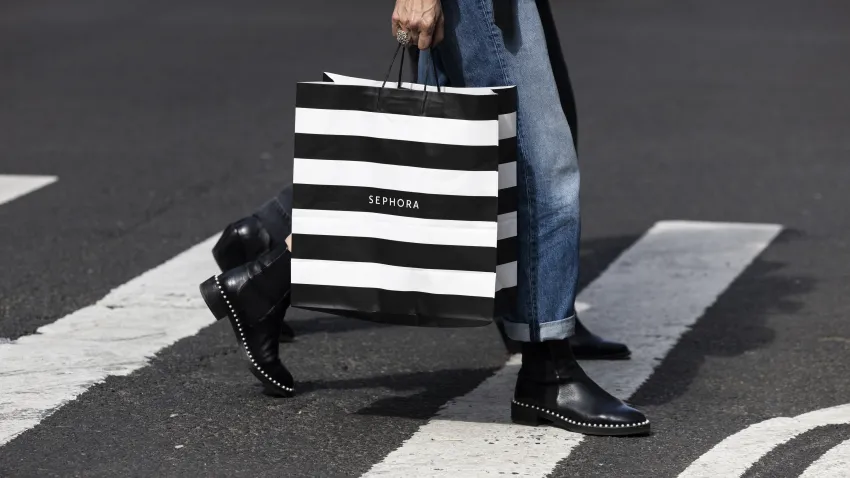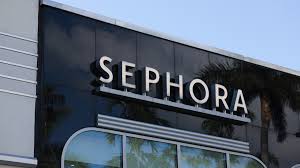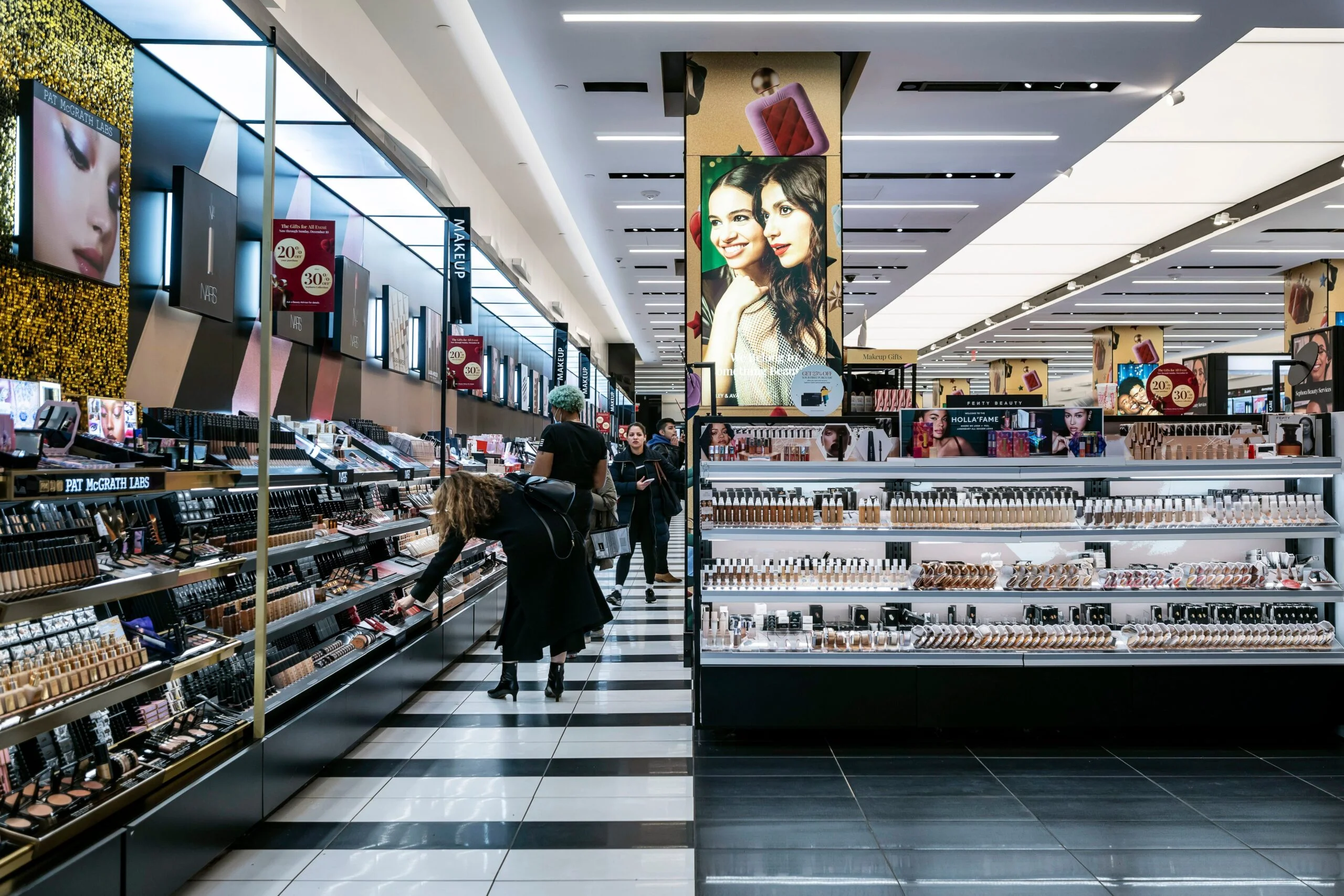The Sephora blackface Boston incident has brought attention to serious issues surrounding race, discrimination, and corporate responsibility. Sephora, a well-known beauty retailer, faced backlash over accusations of blackface during an event or store activity in Boston.
This article explores what happened, the historical context of blackface, Sephora’s response, and how this controversy impacts the beauty industry.
- What Is Blackface?
- Overview of the Sephora Blackface Boston Incident
- Sephora’s Diversity and Inclusion Efforts
- How the Incident Affected Sephora’s Reputation
- Sephora’s Response to the Incident
- The Role of Social Media in Amplifying the Incident
- Broader Implications for the Beauty Industry
- Conclusion
- FAQs
- 1. What is blackface, and why is it offensive?
- 2. What happened during the Sephora blackface incident in Boston?
- 3. How did Sephora respond to the incident?
- 4. What impact did the incident have on Sephora’s reputation?
- 5. Why is this incident important for the beauty industry?
- 6. How can companies avoid similar controversies?
What Is Blackface?
Blackface refers to a form of theatrical makeup used predominantly by non-Black performers to portray a caricature of a Black person. This practice dates back to the 19th century in minstrel shows, where white actors darkened their skin and exaggerated features to mock and stereotype African Americans.
Historically, blackface was used to dehumanize and ridicule Black individuals, reinforcing harmful racial stereotypes. Even though blackface is widely condemned today, it occasionally resurfaces, often causing controversy and public outrage.
Why Is Blackface Offensive?
Blackface is offensive because it perpetuates negative stereotypes that have been used to justify racism and discrimination against Black people. The imagery associated with blackface is rooted in a history of racial inequality, making it deeply hurtful to African Americans and other communities of color.
Have a look on andre hakkak wife
Overview of the Sephora Blackface Boston Incident
The Sephora blackface Boston incident allegedly involved a Sephora store or event in Boston where blackface was displayed in some manner, either intentionally or unintentionally. The controversy began when a customer or witness reported seeing the offensive behavior, which sparked outrage and led to a social media backlash.
Though the exact details of the event remain unclear, the public reaction was immediate. Many people took to social media to express their disappointment and frustration with Sephora, accusing the brand of failing to uphold its commitment to diversity and inclusivity.

Timeline of Events
- Initial Incident: The first reports of the blackface incident emerged from a Sephora store or event in Boston. Whether it was a marketing mishap, a staff member’s actions, or a product display, the incident was perceived as racially insensitive.
- Social Media Backlash: After the incident was made public, it quickly went viral on platforms like Twitter and Instagram. Users criticized Sephora, calling for the company to take accountability and issue a formal response.
- Sephora’s Apology: In response to the growing criticism, Sephora issued an apology, stating that the incident did not reflect the company’s values. Sephora emphasized that it is committed to diversity, inclusivity, and educating its employees on sensitive issues.
- Public Reactions: Despite the apology, many people were unsatisfied with Sephora’s response. Some consumers questioned the brand’s authenticity when it came to inclusivity, while others called for boycotts.
Sephora’s Diversity and Inclusion Efforts
Sephora has long marketed itself as an inclusive beauty brand that celebrates diversity. The company offers a wide range of products designed for various skin tones and has featured models from different ethnic backgrounds in its advertising campaigns. However, the blackface Boston incident cast doubt on how well Sephora’s diversity initiatives are executed within the company.
Key Initiatives Prior to the Incident
Before the incident, Sephora had introduced several diversity-focused initiatives, such as:
- The Sephora Accelerate Program: This program was created to support female entrepreneurs, including women of color, by offering mentorship and resources to help them grow their beauty businesses.
- Inclusivity in Product Lines: Sephora prides itself on offering products for people of all skin tones and types. The company carries brands like Fenty Beauty, which revolutionized the industry with its extensive shade range.
- Marketing Campaigns: Sephora’s campaigns often feature models from various ethnic backgrounds to represent a wide range of beauty.
Criticism and Calls for Improvement
While Sephora has made strides in promoting diversity, critics argue that the blackface incident reveals gaps in its internal practices. Many have called for more thorough training on cultural sensitivity and stronger enforcement of diversity policies at all levels of the company.
Visit duke dennis
How the Incident Affected Sephora’s Reputation
The blackface controversy had a significant impact on Sephora’s reputation. The company has a large, loyal customer base, but the incident caused many to question whether Sephora is truly committed to inclusivity or if it is simply a marketing strategy.
Short-Term Impact
In the immediate aftermath of the incident, Sephora faced a public relations crisis. Social media was flooded with comments and posts criticizing the brand, and many consumers expressed disappointment. Some customers even called for boycotts, urging others to stop supporting Sephora until the company took more substantial actions to address the situation.
Long-Term Impact
The long-term impact of the incident depends on how Sephora handles the situation moving forward. If the company follows through on its promises to improve diversity training and corporate culture, it may be able to rebuild trust with consumers. However, if similar incidents occur, Sephora’s reputation could suffer lasting damage.
Sephora’s Response to the Incident
Sephora responded to the blackface controversy by issuing a public apology. The company acknowledged the incident and reiterated its commitment to diversity and inclusion. In addition to the apology, Sephora announced several steps to prevent future incidents and improve its internal practices.
Key Actions Taken by Sephora
- Diversity Training: Sephora pledged to implement more comprehensive diversity and inclusion training for all employees. This training aims to educate staff on cultural sensitivity and prevent any future incidents related to racial insensitivity.
- Increased Focus on Inclusivity: Sephora committed to reviewing its internal policies to ensure that diversity is a core focus in all aspects of its operations, from product development to customer service.
- Community Engagement: The company stated that it plans to engage more with underrepresented communities to better understand their concerns and needs.
Public Perception of Sephora’s Response
While some consumers appreciated Sephora’s swift response and apology, others felt that the company’s actions did not go far enough. Critics argued that Sephora needed to take more tangible steps, such as hiring more diverse leadership or creating new diversity-focused initiatives.
The Role of Social Media in Amplifying the Incident
Social media played a critical role in amplifying the Sephora blackface incident. Platforms like Twitter, Instagram, and Facebook allowed users to share their thoughts and reactions, quickly spreading awareness of the controversy. Hashtags related to the incident gained traction, putting additional pressure on Sephora to respond.
The Power of Social Media in Holding Brands Accountable
In today’s digital age, social media gives consumers a powerful platform to hold brands accountable for their actions. In the case of Sephora, social media users were able to organize and voice their concerns in real-time, pushing the company to issue a response faster than it might have otherwise.

Broader Implications for the Beauty Industry
The Sephora blackface Boston incident highlights broader issues within the beauty industry. Despite efforts to promote diversity, many beauty brands still struggle with cultural sensitivity and representation. This incident serves as a reminder that brands must do more than simply market inclusivity—they must also practice it internally.
The Importance of Authenticity
Consumers today are more informed and socially conscious than ever before. They expect brands to be authentic in their commitments to social issues like diversity and inclusion. The Sephora blackface Boston controversy shows that failing to align actions with stated values can lead to significant backlash.
Lessons for Other Companies
Other companies can learn important lessons from the Sephora blackface controversy. It’s essential for businesses to:
- Implement Comprehensive Diversity Training: Employees at all levels must be educated on issues of cultural sensitivity to prevent incidents of racial insensitivity.
- Practice What They Preach: Companies should ensure that their internal practices reflect the values they promote in their marketing.
- Engage with Underrepresented Communities: By actively listening to and engaging with underrepresented groups, companies can better understand their needs and avoid potential controversies.
Conclusion
The Sephora blackface incident in Boston has raised important questions about race, representation, and corporate accountability. While Sephora has taken steps to address the situation, the incident serves as a reminder of the work that still needs to be done to create truly inclusive environments. Moving forward, it will be crucial for Sephora and other brands to align their actions with their commitments to diversity and inclusion.
FAQs
1. What is blackface, and why is it offensive?
Blackface is the practice of non-Black individuals darkening their skin to mimic Black people, often in a derogatory or stereotypical way. Blackface is offensive because it perpetuates harmful racial stereotypes and has a painful history of demeaning Black communities.
2. What happened during the Sephora blackface incident in Boston?
An employee or event at a Sephora store in Boston displayed blackface imagery or behavior, sparking public outrage and leading to accusations of racial insensitivity.
3. How did Sephora respond to the incident?
Sephora issued a public apology and announced plans to improve diversity training for its employees, as well as to review its internal practices to ensure greater inclusivity.
4. What impact did the incident have on Sephora’s reputation?
The incident had a negative impact on Sephora’s reputation, with many consumers expressing disappointment and some calling for boycotts. The long-term effect will depend on how Sephora follows through with its promises.
5. Why is this incident important for the beauty industry?
The Sephora blackface incident highlights ongoing issues related to diversity and representation in the beauty industry. It shows that brands must do more than market inclusivity—they must practice it within their internal operations.
6. How can companies avoid similar controversies?
Companies can avoid similar controversies by implementing comprehensive diversity training, fostering inclusive cultures, and ensuring their actions align with their stated values regarding inclusivity and diversity.







